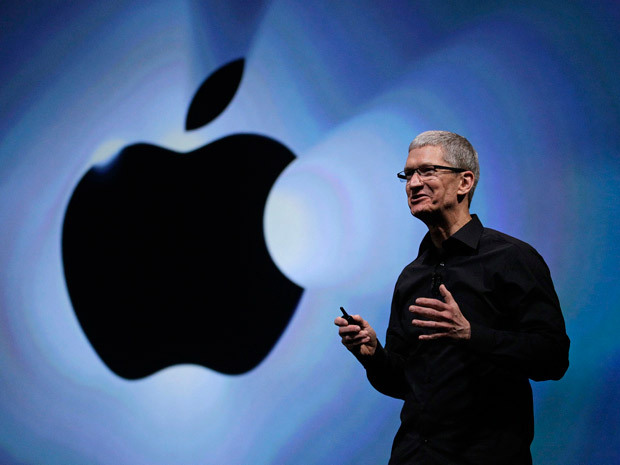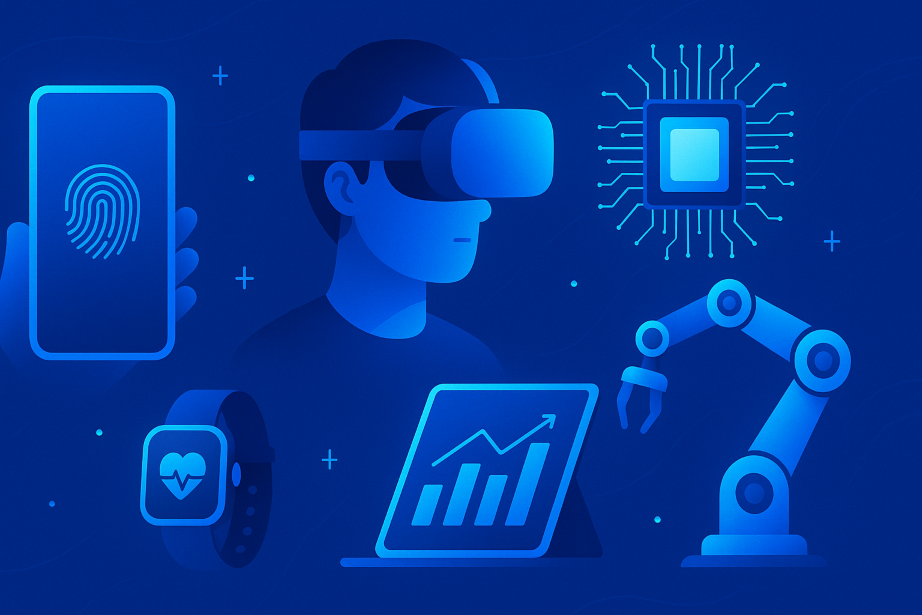
Apple’s New AI Chips for Smart Glasses and Servers
Apple is making bold advancements in artificial intelligence with the development of its own Apple AI Chips for two major domains: smart glasses and AI servers. This ambitious move is designed to solidify Apple’s position in the AI-powered hardware space and compete with tech giants like Meta, Google, and Microsoft.
According to a Bloomberg report, Apple has been secretly working on specialized chips tailored for next-generation devices that demand both energy efficiency and high-performance AI capabilities. These chips represent a significant strategic investment that could power Apple’s innovation across wearables and cloud services.
Smart Glasses: A New Frontier
Apple’s entry into the smart glasses market is expected to be groundbreaking. Unlike the typical augmented reality (AR) glasses we’ve seen from other companies, Apple’s version is designed to focus on lightweight wearability, seamless integration with iOS, and optimized performance.
The Bloomberg report reveals that Apple is building a custom low-power chip derived from Apple Watch architecture. This chip will reportedly manage multiple cameras, sensors, and image processing — all while keeping battery consumption at a minimum. By leveraging their in-house silicon design, Apple aims to avoid reliance on third-party processors and gain complete control over the software-hardware integration.
These smart glasses, likely to be positioned as a mainstream wearable before any full-fledged AR headset, are expected to enter mass production by 2026 or early 2027. Taiwan Semiconductor Manufacturing Company (TSMC), Apple’s long-term chip partner, will manufacture these Apple AI Chips, ensuring they meet the stringent design and efficiency criteria Apple is known for.
AI Servers with Proprietary Apple AI Chips
In parallel with wearables, Apple is also developing custom AI server chips to power its upcoming Apple Intelligence platform. This server infrastructure is central to Apple’s vision for privacy-centric AI that runs both on-device and in the cloud.
Codenamed “Project ACDC” internally, Apple’s AI servers are built around specialized chips designed to handle massive AI workloads such as:
– Language model inference (like integrating ChatGPT)
– Real-time voice and image recognition
– Predictive assistance across iOS, macOS, and Siri
Apple’s custom silicon efforts for servers involve deep collaboration with Broadcom. The chips will support high-throughput networking and are set to be manufactured using TSMC’s N3P process, a cutting-edge 3nm fabrication technology. Bloomberg’s coverage highlights that mass production is targeted for 2026, marking a significant shift in Apple’s infrastructure strategy — away from relying on Nvidia or AMD and toward fully custom, in-house designs.
This new generation of Apple AI Chips will not only reduce dependence on external AI infrastructure providers like OpenAI or Microsoft Azure, but also give Apple full control over how data is processed and secured.
Why Apple AI Chips Matter: Strategic Vision and Market Differentiation
Apple’s investment in custom AI chips for both smart glasses and servers is not just about improving product performance — it’s about shaping the company’s long-term AI ecosystem strategy.
Key Advantages:
1. End-to-End Control: From smart glasses to cloud-based AI, Apple will control both the client and server ends of the experience.
2. Privacy First: On-device AI processing will remain a key differentiator, with Apple promising that personal data doesn’t leave your device unless explicitly allowed.
3. Efficiency at Scale: By optimizing chips specifically for AI tasks, Apple can reduce energy usage, heat output, and latency — all critical for wearables and large-scale AI inference.
Apple’s entry into server-grade AI chips also places it in competition with Microsoft’s Maia, Amazon’s Inferentia, and Google’s TPU chips. But Apple’s approach is more tightly coupled with its consumer ecosystem, providing potentially seamless experiences across iPhone, iPad, Mac, and future wearables.
A Unified Vision for Apple’s AI Future
As Apple continues to double down on AI, it’s clear that Apple AI Chips will serve as the core of its future hardware and software offerings. Whether enabling the lightweight, power-efficient smart glasses or powering the backend of its conversational and generative AI features, these chips represent a critical evolution in Apple’s product roadmap.
The company is not simply playing catch-up in the AI race — it’s designing the infrastructure needed to leapfrog the competition by offering an experience rooted in privacy, performance, and user trust.
With Apple expected to unveil more details during its upcoming events in 2025 and 2026, tech watchers and consumers alike are eagerly anticipating how these chips will transform the way we use and interact with technology.
For more details, read the full Bloomberg article here:


Good day! I know this is kinda off topic nevertheless
I’d figured I’d ask. Would you be interested in exchanging links or maybe guest authoring
a blog article or vice-versa? My blog goes over a lot of the same subjects as
yours and I believe we could greatly benefit from each other.
If you are interested feel free to send me an e-mail.
I look forward to hearing from you! Fantastic blog by the way!